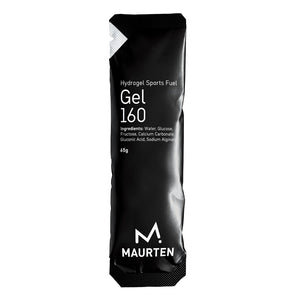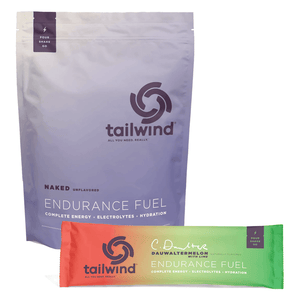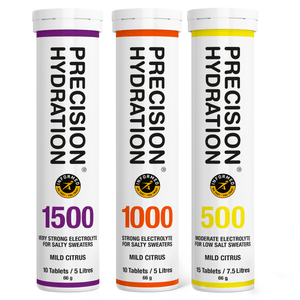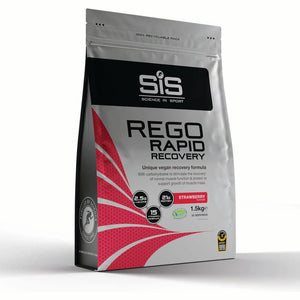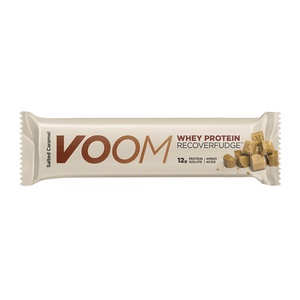It’s your choice - with our knowledge.

The Power of Energy, Hydration, and Recovery
In today's fast-paced world, it's more important than ever to maintain high energy levels, optimal hydration, and effective recovery strategies.
Whether you're an athlete, a busy professional, or simply someone striving to lead a healthy and productive life, understanding the interplay between these three factors is crucial.
Our Nutrition Calculator is a great tool to use to help work out how much nutrition you will need for a session.
Energy
Energy is the foundation of everything we do.
It drives our physical and mental performance, allowing us to excel in our endeavours. To maintain consistent energy levels, it's important to prioritize proper nutrition and regular physical activity.
- Nutrition: A balanced diet rich in whole foods, including complex carbohydrates, healthy fats, and lean proteins, provides the necessary fuel for your body. Complex carbohydrates are a slow-burning source of energy that helps keep you feeling full and energized throughout the day. Healthy fats are essential for hormone production, cell growth, and cognitive function. Lean proteins are needed to build and repair muscle tissue.
- Physical activity: Regular exercise helps improve cardiovascular fitness, enhances endurance, and stimulates the release of endorphins, boosting energy levels. Aim for at least 30 minutes of moderate-intensity exercise most days of the week.
During your activities, you may want to top up your energy levels with supplements such as energy gels, drinks, chews, and other convenient options. These products are designed to provide a quick and easily digestible source of energy, making them popular among athletes and individuals engaged in prolonged or intense physical activities.
Energy Gels, for example, are portable, single-serving packets containing a concentrated dose of carbohydrates, often in the form of glucose or maltodextrin. These carbohydrates are rapidly absorbed by the body, delivering a quick burst of energy when you need it most.
Energy Drinks, on the other hand, typically contain a combination of carbohydrates, electrolytes, and sometimes caffeine or other stimulants. They provide hydration along with an energy boost.
Energy Chews are another popular option. These are small, chewable candies or gummies infused with carbohydrates and sometimes electrolytes. They offer a convenient and tasty way to replenish energy during physical activities, as they can be easily consumed on the go.
While these energy supplements can be beneficial during intense or prolonged exercise, it's important to remember that they should not replace a well-balanced diet. Whole foods remain the foundation of proper nutrition and should be prioritized for long-term energy management. Supplements should be seen as a complementary tool rather than a substitute for healthy eating habits.
Furthermore, it's essential to choose energy supplements wisely, considering factors such as personal preferences, dietary restrictions, and specific activity goals. Reading our nutrition information and understanding the ingredients is crucial to ensure that you're making informed choices. If you have any specific dietary concerns or medical conditions, it's advisable to consult with a healthcare professional or a registered dietitian before incorporating energy supplements into your routine.
Hydration
Hydration is often underestimated but plays a vital role in our overall well-being and performance.
Water is essential for regulating body temperature, lubricating joints, transporting nutrients, and eliminating waste.
Dehydration can lead to decreased cognitive function, reduced physical performance, and even health risks.
To stay properly hydrated, aim to drink an adequate amount of water throughout the day, especially during exercise or in hot weather.
- How much water do you need? The amount of water you need each day depends on a number of factors, including your age, activity level, climate, and overall health. A good rule of thumb is to drink half your body weight in ounces of water each day. For example, if you weigh 150 pounds, you should drink about 75 ounces of water per day.
- What about other fluids? Other fluids, such as coffee and tea, can also contribute to your daily water intake. However, it's important to note that these drinks also contain caffeine and sugar, which can dehydrate you if consumed in excess.
While water is a fundamental source of hydration, incorporating electrolyte-rich beverages can further optimize the body's fluid balance. Electrolytes are minerals, including sodium, potassium, calcium, and magnesium, which are essential for proper cellular function. During exercise or prolonged physical activity, electrolytes are lost through sweat. Replenishing these electrolytes is crucial for maintaining fluid balance and supporting optimal hydration.
Electrolyte Powders and Tablets, such as those available at XMiles, offer a convenient way to replenish electrolytes and optimize hydration. These products are designed to be added to water, providing a refreshing and electrolyte-rich drink. They help replace the minerals lost through sweat and support proper fluid absorption and retention in the body.
When choosing electrolyte supplements, it's important to consider your individual needs, taste preferences, and any dietary restrictions. Different products may have varying electrolyte compositions or additional ingredients. Reading labels and understanding the specific electrolyte needs for your activity level can help you make an informed choice.
Recovery
Recovery is a critical yet often overlooked component of achieving optimal performance. Intense physical activity, whether it's high-intensity workouts or demanding mental tasks, can place stress on our bodies and minds. Proper recovery allows for repair, adaptation, and growth.
- Sleep: Prioritize quality sleep to facilitate tissue repair, hormone regulation, and memory consolidation. Most adults need around 7-8 hours of sleep per night.
- Nutrition: Proper nutrition, including post-workout meals with a balance of carbohydrates and proteins, aids in muscle repair and replenishment of energy stores. After a workout, the body requires nutrients to initiate the recovery process, repair damaged muscle tissues, and replenish depleted energy stores. Protein plays a vital role in muscle repair and growth, as it provides the necessary amino acids for the synthesis and regeneration of muscle fibres. Including protein in your post-workout meals or snacks helps stimulate muscle protein synthesis, which is essential for repairing and rebuilding muscle tissue. Protein drinks and recovery bars are convenient options to ensure an adequate intake of protein following a workout, as they provide a concentrated source of this macronutrient.
- Relaxation: Incorporate relaxation techniques such as meditation, deep breathing exercises, or yoga to reduce stress levels and promote mental rejuvenation.
After a workout, the body requires nutrients to initiate the recovery process, repair damaged muscle tissues, and replenish depleted energy stores. Protein plays a vital role in muscle repair and growth, as it provides the necessary amino acids for the synthesis and regeneration of muscle fibres.
Including protein in your post-workout meals or snacks helps stimulate muscle protein synthesis, which is essential for repairing and rebuilding muscle tissue. Protein drinks and recovery bars are convenient options to ensure an adequate intake of protein following a workout, as they provide a concentrated source of this macronutrient.
Recovery Drinks are typically available in powder form, allowing you to mix them with water, milk, or a liquid of your choice. These drinks often contain a blend of high-quality protein sources, such as whey, casein, or plant-based proteins like soy or pea. They are quickly absorbed by the body, delivering amino acids to the muscles for efficient recovery.
Recovery Bars, on the other hand, are pre-packaged bars formulated specifically for post-workout recovery. They often contain a combination of protein, carbohydrates, and sometimes additional ingredients like vitamins, minerals, or antioxidants. These bars offer a convenient and portable option for refuelling after exercise, providing a balanced ratio of macronutrients to support recovery.
The carbohydrates in post-workout meals or snacks are equally important as they help replenish glycogen stores, which are the body's primary source of energy during exercise. Including a balance of carbohydrates and proteins in your post-workout nutrition helps optimize glycogen restoration and promotes muscle recovery.
It's worth noting that the specific protein and carbohydrate requirements for post-workout nutrition can vary based on factors such as individual goals, workout intensity, and body composition. Consulting with a registered dietitian or sports nutritionist can provide personalized guidance on the optimal macronutrient ratios and total caloric intake for your specific needs.
Summary
To unlock your peak performance, it's essential to prioritize energy, hydration, and recovery in your daily routine. By fuelling your body with the right nutrients, staying adequately hydrated, and implementing effective recovery strategies, you can enhance your physical and mental capabilities.
Remember, success is not just about pushing harder but also about taking care of your body and mind. Embrace the power of energy, hydration, and recovery, and watch yourself achieve new heights in all aspects of life.
By following these tips, you can improve your energy levels, hydration, and recovery, and achieve your peak performance.
It’s your choice - with our knowledge.










































































































